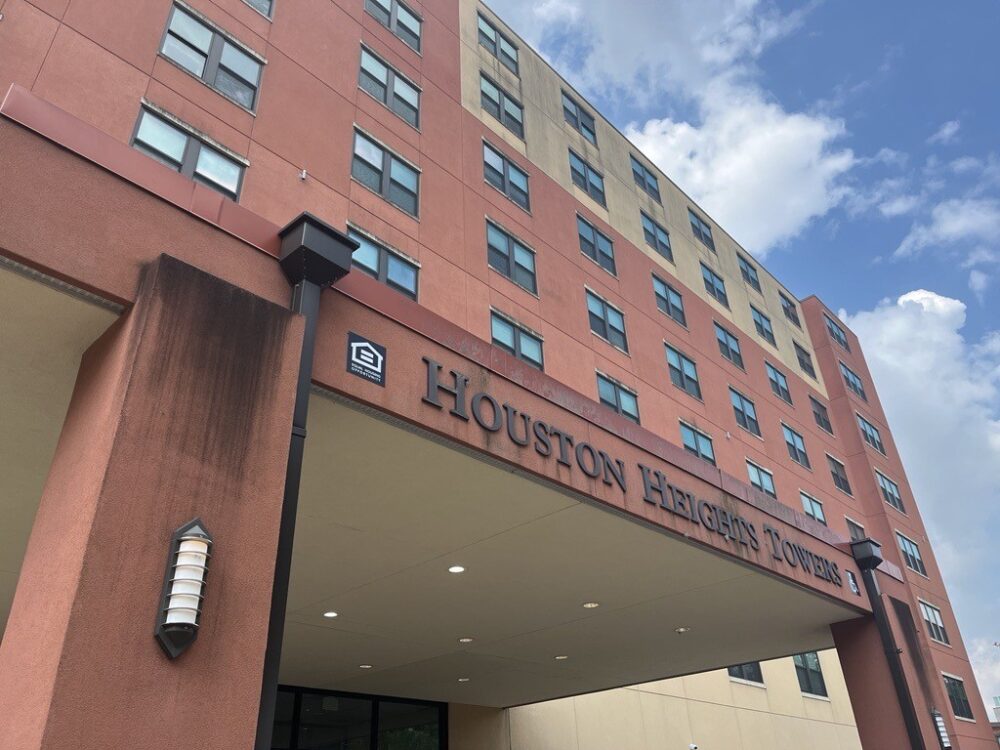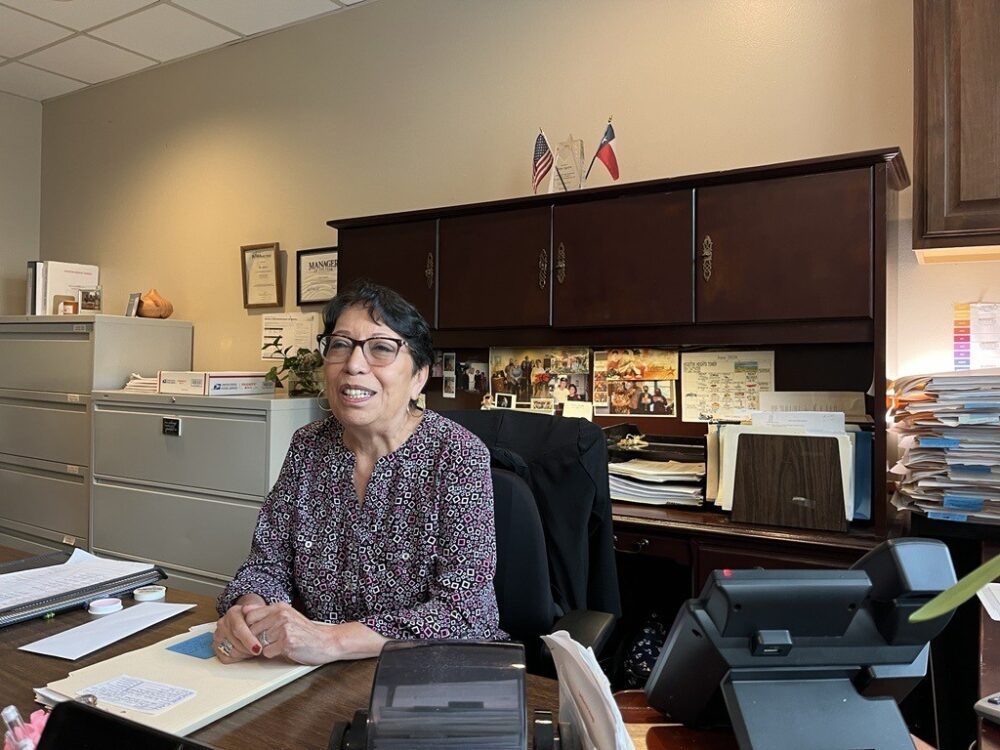Independent living facilities for seniors do not face the same stringent oversight like nursing homes or assisted living centers.
 |
| Rosie Powell is 71 and she said she hasn’t had AC in her apartment since June 7. She lives in Palisades of Inwood, a senior living complex. |
Rosie Powell is 71 and she hasn't had AC in her apartment for nearly a month.
"I’m sitting here in the living room now with my little portable fan that I bought from Walmart," she said one June afternoon. Her thermostat read 87 degrees Fahrenheit.
Powell moved to Palisades of Inwood, a senior living complex in North Houston, a decade ago because she decided living in a senior living community is much cheaper and easier than maintaining her own property. She also enjoys the camaraderie of other elderly people.
But she said the tradeoff has come with a cost: the type of facility she lives in comes with little oversight.
Although Powell is in a senior complex, there's a stark contrast in how the different types of senior living facilities are regulated — and that leaves some of the most vulnerable seniors in gaps in care. "Nobody come over here and see about us," Powell said.
Centers that offer medical care, such as nursing homes and assisted living centers, are required to be storm ready. Texas Health and Human Services outlines strict guidelines for how these kinds of facilities should be prepared for emergencies.
But those regulations don't extend to independent living communities, which is what Palisades of Inwood is.
Complexes categorized as independent are typically not required to provide special care to seniors even though they're marketed to people older than 55. "It’s just like a regular apartment complex," Houston City Council Member Amy Peck said. Residents at independent complexes can be low income, on medication, and unable to walk on their own.
Peck worries that many aren't as independent as those living in specialized care facilities, and with an active hurricane season ahead, the risks are high.
"A lot of times there are a bunch of senior citizens living in an apartment complex with no kind of accountability for what could happen in a disaster situation or any other kind of situation," Peck added.
Powell said her AC went out on June 7, along with nearly a dozen of her neighbors. She worries about them because some have more serious health conditions. Their landlord gave them portable AC units, but it's not enough to cool their place down during Houston's triple-digit summer heat.
"I’m sitting here in the living room now with my little portable fan that I have bought from Walmart," Powell said. "I just try to brace myself and try to have enough food or water around here to take care of me... It's just not what we were told it was going to be."
Latasha Washington, manager of Palisades of Inwood, the complex where Powell lives, declined to comment.
Seniors, even those living independently, often live with chronic health problems and rely on power to keep life saving devices charged and medications at the right temperature, making extended periods of power outages all more dangerous for them.
State Senator Molly Cook holds a Master's in Public Health. She said as people age, they're more at risk of dehydration.
"Especially if it’s humid, that could be lethal to them," Cook said.
Storms in May, especially the derecho, caught Houstonians by surprise, leaving many without power or AC for days, including senior care communities. It became a test of who is prepared for hurricane season.
"What we saw out there was that folks were falling between the gaps," Cook said.
Centers that offer medical care are required by the state to have things such as a generator, enough food and water for each resident for at least three days, and an evacuation plan.
Chuck Lalonde is a senior vice president of operations for Belmont Village Senior Living, which has two assisted-living and memory care facilities in Houston.
"It’s a pretty strict list that we follow, so we’re not reinventing the wheel every hurricane season," Lalonde said.

But these centers can also cost as much as $7,000 a month, which few seniors can afford. Independent living communities are much cheaper. At Houston Heights Tower, an independent living community in central Houston, rent for a one-bedroom apartment is around $750 a month.
Linda Holder is the executive director of The Housing Corporation, a nonprofit with eight independent living communities in Houston, including Houston Heights Tower.
She said although they cater to the elderly, it's all in the name: independent living.
"We really can’t, we can’t take care of people’s medical needs," Holder said. "There’s always 911, we are very high profile with the fire department."
Despite that, she said they do stock extra food and water and provide a cooling center when power goes out.

Power at Houston Heights Tower was out for four days after the derecho on May 16 and Hope Aguirre, the building's property manager said she brings residents living in the building's top floors down to lower levels.
"I bring them down and they can either be on the hallways or in the community room here because I don’t want no one on the top, just so they won’t get scared or anything," Aguirre said.
Peck with city council said she is looking into drafting local policies to regulate independent living communities.
"There needs to be some changes to our city ordinances and possibly the state law as well that says, you know that there has to at least be some kind of minimum standard of care at these apartment complexes," she said.





No comments:
Post a Comment